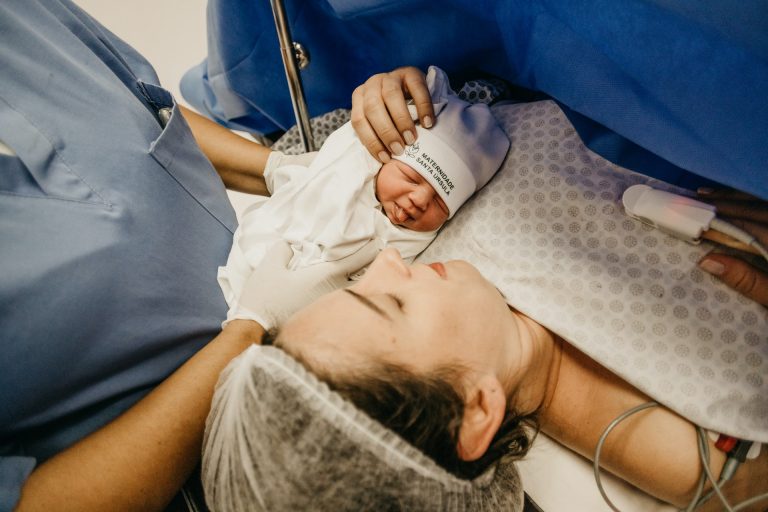Cesarean Delivery on Maternal Request:
It is the delivery by cesarean section based on the mother request in the absence of medical indications.
The mother has the full control over her body and the decisions regarding the route of delivering her baby. Also, the doctor has the right to reject the mother’s request, and refers her to another doctor.
Reasons:
1. Fear of pain or complications of vaginal delivery such as pelvic organ prolapse, stress Urinary incontinence or fecal incontinence.
2. Scheduling the delivery on a specific date.
3. Bad experience with vaginal delivery before.
4. Concerns of possible fetal harm during labor and vaginal delivery.
Possible benefits of Cesarean Delivery on Maternal Request:
Some of these benefits are based on low quality data.
1. May reduce the risk of pelvic floor injuries such as organ prolapse, ligaments relaxation, urinary incontinence, anal incontinence.
2. Avoid complications such as asphyxia, complications related to shoulder dystocia, transmission of some infections (herpes simplex virus, HIV).
3. The mother can plan and organize work, home, help with a scheduled c-section.
4. Avoid the possible risks of unplanned surgery.
5. Avoid the possibility of postterm pregnancy and its potential risks (perinatal morbidity and mortality).
6. May reduce the chance of early postpartum hemorrhage. (with uncomplicated pregnancies and no previous cesarean).
7. Prevent the possibility of stillbirth.
The safety of cesarean has been attributed to safer anesthetic techniques and the use of prophylactic antibiotics and thromboprophylaxis.
There is no increase risk of maternal mortality for planned C-section.
Cesarean delivery possible complications:
Complications possibility increases with the increase number of cesarean deliveries, so If the mother plans for several pregnancies, it is advised to avoid cesarean delivery on request.
1. In future pregnancies:
a. Risk of Placenta previa
b. Risk of Placenta accreta
c. Risk of placenta abruption
d. Risk of uterine rupture
e. Adhesions risks and bowel obstruction
2. Complications related to anesthesia
3. Possible complications with the mother like hysterectomy, infection, wound hematoma, venous thromboembolism
4. Longer hospital stay
5. Incisions complications: numbness, hernia, ectopic pregnancy on the incision
6. Newboen’s Respiratory problems, hypothermia and hypoglycemia
Conclusion:
1. Generally, natural vaginal delivery should be recommended by the doctor if there was no medical indication for a c-section.
2. The doctor should balance the risks and benefits of the two options and discuss all the potential risks and complications.
3. If planned C-section is decided, it should not be done before week 39.
4. If the reason behind planned C-section is the fear of vaginal delivery pain, the doctor must discuss the available options of analgesia for labor.



